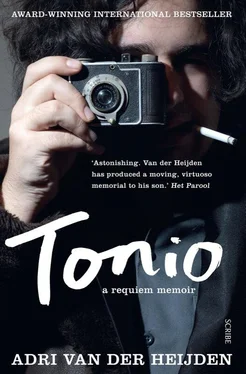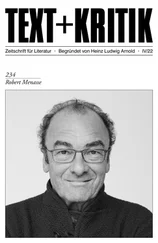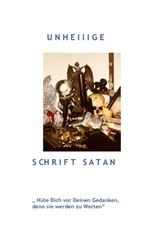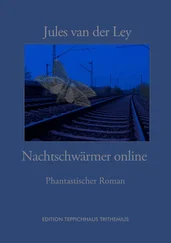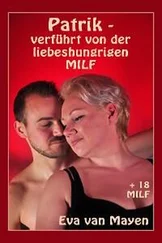Tonio laughed. ‘I’ll bet I know how it ended.’ He pulled the cloth back round his neck and pressed the cool fabric against his overheated ears, a sign sleep was at hand.
‘Hey, no butting in, you. Well, it did go differently than I’d planned. Behind the door where I needed to be was a kind of hallway, only a metre square, with a plastic chair. Not enough room to swing a cat. There was this small counter with a computer on it, and—’
‘You had computers back then?’
‘Yeah, wouldn’t you know it? Computers, even before you were born. Antique ones, pedal-powered.’
‘So how come you still don’t know how—’
‘You can teach me one day. So there was this young woman at the birth-registry computer, she was all friendly and welcoming. Entirely truthfully, I said: “My wife gave birth to a son yesterday, and now—” This was in the days when civil servants were still encouraged to put the public at ease, so she cried: “Oh, how gre-e-e-e-at ! What’s his name?” I thought the official part was still to come, so I answered — again, nothing but the truth — well, what do you think I answered?’
Tonio dropped his voice and said, dreamily: ‘Tonio.’
‘And the young woman, half singing: “What a great na-a-a-ame !” I should’ve noticed her fingernails dancing over the keys, but I was a nervous young … er … brand-new father, and I wasn’t on the ball. She glanced at the passport I had laid on the counter and went back to her typing. A sheet of paper came rolling out of the printer, and bam , on went the city’s official stamp. She folded it in half, slid it into a plastic cover, beamed at me, and said: “I wish you and your wife, and of course baby Tonio, a happy start.” Before I knew it, I was standing outside by the canal, reeling slightly from the fast-track process. Something wasn’t quite right …’
‘Adri, I said I knew how it was going to turn out.’
‘Yeah, go ahead and laugh. It was first and foremost about you.’
‘But how could you—’
‘Exactly. That’s what being a brand-new dad does to you. You lose your mind. I opened the folder. Van der Heijden, Tonio, born 15 June 1988, registered 16 June 1988. A-OK. Dumb bunny! If she’d just asked for a middle name, I’d have pulled it off.’
‘Why didn’t you go back? You could have said: something has to go in between. Rotenstreich. No hyphen. Huh, Adri?’
His voice sounded soft and childlike. The story had taken a turn for the worse. His hands were stuck into the rolled-up cloth, like in a muff.
‘I didn’t dare. I was afraid that if she heard that so-called middle name now … that she’d get suspicious.’
‘Whoa.’
‘I first had to rethink my strategy. Maybe write to the queen after all.’
‘Mama was cross, I’ll bet.’
‘So back to the hospital. She was just breast-feeding you in the maternity ward. She looked at me with … you know … with those big, brown, expectant eyes, which think they know what’s coming. That her family name has been rescued for at least a whole generation.’
Tonio slowly shook his head no, and again no. If I detected a whiff of schadenfreude , it was directed at me, not at his mother.
‘I told Mama what went wrong. A happy start? No, you couldn’t call it a happy start.’
‘Adri, I can’t believe you could be so stupid.’
6
It’s time I finally gave him his middle name.
1
The doorbell, twice: first short and hesitant, then long and emphatic.
The abrasive shrillness always scared the Norwegian forest cats out of their wits, and sent them scampering for cover — the reason Miriam would disconnect the electric bell on weekday mornings, when the postman might ring with a package. The cats always came first. Today, Sunday, the chance that anyone would ring was negligible, certainly this early in the day, so she left it plugged in.
The first tinkle sounded as though a finger was unable to get a grip on the button. Loud enough, however, to send the cats charging up the first flight of stairs. Even from where I was, in bed on the second floor, I could hear the drumroll of their heavy paws on the steps. They probably paused in the bend of the stairs, only to dash up even faster after the second, much more insistent, ring. Their claws scrabbled over the parquet floor on the first-storey landing, after which they took the next flight of stairs by leaps and bounds. The stampede and the doorbell’s echo ended simultaneously, so Tygo and Tasha probably came to a halt halfway up the second flight, their ears pricked up and their coarse fur standing on end, alert for further hostilities.
2
Whit Sunday, 23 May 2010. The bell of the Obrechtkerk had just chimed nine times. The intrusive peal calling the parishioners to prayer would only come later, at a quarter to eleven. Classic Sunday morning tranquillity in Amsterdam Oud-Zuid.
I lay on my back in bed. I had raised the head end of the mattress by remote control to reading level. The curtains were open partway, so from my pillow I could see what a fine spring day it was becoming. (The newspaper had predicted a ‘summery’ day.) The sun was still hidden behind the tall houses, their eaves in stark silhouette against the deep blue sky. Just as the structure of falling rain can often portend much of the same all day, today’s sky betrayed its intention of remaining cloudless until evening.
The breeze that wafted into the bedroom through the balcony doors was still cool, raising goosebumps on my bare shoulders, so I slipped on a yellow-and-brown checked flannel shirt.
I wasn’t really reading. The book in which I had planned to look up a certain passage lay, skewered on my index finger, on the covers. Flipping through it only made me more aware of the sense of delicious comfort I’d been granted this morning. Lounging here in bed, hunting down that paragraph, counting the church bells … it all served as an extremely agreeable deferment.
On the long sorting-table in my workroom a floor higher lay a new work schedule for the coming 100 days, starting tomorrow, Whit Monday. According to the outline, today was Day Zero, tomorrow Day One, and 31 August Day 100. September 1: Delivery Day.
Always those 100-day work blocks … it’s been like this for twenty years now. Superstition? An affectation? Compulsive clinging to decimal urges? A bit of all of them, I suspect, and more of the same.
I had discovered by coincidence that a schedule of 100 consecutive workdays (a sizeable yet manageable timespan) fitted me like a glove. At the end of 1989 I went off, wife and child in tow, to live for a year in the Veluwe, a wooded region in the middle of the province of Gelderland in the east of the country. I had convinced myself that it would benefit my new novel, which was set in Amsterdam, if I were to remove myself from that setting for a while. In fact (although I didn’t admit it) I wanted to shelter my little family, including the eighteen-month-old Tonio, in the security of the hinterland. When the little tyke was old enough to go to primary school we would return to the city.
But after only a few months, in the spring of ’90, we became involved in a dispute with the landlord, whose house was connected to ours by a glass-enclosed walkway. The quarrel escalated into the kind of psychological (and occasionally physical) warfare I certainly didn’t need to leave Amsterdam for. In order to finish my book in time for its autumn publication, I was forced to look for suitable lodgings elsewhere.
I chose De Pauwhof, an old artists’ and scientists’ colony in Wassenaar, where on 23 June I began the definitive version of Advocaat van de Hanen . On 1 October I sat in a taxi with the completed typescript of that cursed book on my lap, heading back to Loenen in the Veluwe, where I would fetch wife and child and take them back to Amsterdam. On the back seat I calculated how long I had worked on the completion of the novel while in Wassenaar. Nulla dies sine linea (‘Not a day without a line’) — panic and a guilty conscience had guaranteed that. I arrived at a total of exactly 100 days, including weekends. An obsessive ritual was born.
Читать дальше
